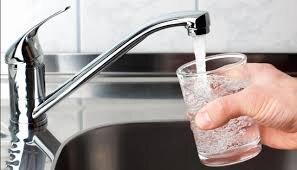Reliable access to clean drinking water is a fundamental human need. The city of Rohnert Park, home to more than 40,000 residents and a prestigious public university that hosts 9,000 students, has struggled to provide this clean water to its residents. Living in the beautiful North Bay is a dream for many, but how does the ongoing issue with water safety affect this dream?
In 2019, the California State Water Resources Control Board, as well as information from the U.S. EPA Enforcement and Compliance History database, proved that a total of 24 contaminants were found in the tap water, and 10 of the contaminants exceeded EWG health guidelines. The database also emphasizes that “legal does not necessarily equal safe,” and that getting a passing grade from the federal government “does not mean the water meets the latest health guidelines.” Additionally, the legal limits for contaminants in tap water have not been updated in almost 20 years.
The amount of contaminants found in the tap water of Rohnert Park is far more than the legal limit, and are known to potentially cause cancer. The legal limit for the amount of arsenic in tap water is 10 ppb; the amount of arsenic in Rohnert Park tap water exceeds this limit by more than 1,112%. Bromodichloromethane is also present and exceeds the health guideline by 77%, as well as chromium, which exceeds the health guideline by 96%. The amount of total trihalomethanes in the water exceeds the health guideline by 94%. Ten of the 24 contaminants found in the water greatly surpass the limit of exposure that is considered healthy. If you wish to see the full list of contaminants detected in the tap water in Rohnert Park, visit the EWG’s tap water database for 2019, and enter the zip code for Rohnert Park.
In 2016, County health officials in Rohnert Park revealed that 17 of 31 residential wells tested in the development south of Sonoma State University were ridden with potentially harmful bacteria, including E. coli. Derek Moore, a journalist from the Press Democrat, explained in an article that there have been “long-standing disputes in several Sonoma County neighborhoods over water rights and responsibility for ensuring that the water is safe.” According to his article, as far back as 1976, “excessive and elevated levels of nitrates began showing up” in some private wells.
Health inspectors hypothesized that the contamination likely originated from fecal material from former chicken farms in the area. In 2010, a county ordinance amendment stated that the water in some neighborhoods of Rohnert Park was “an immediate danger to public health.”
If the residents of Rohnert Park want safer water, they should contact local officials who can and may actually push for an effective change. It is important to hold elected officials accountable by asking questions and demanding answers. Letting officials of all levels know that we care about safe, affordable tap water will help keep the issue on the agenda and ensure that all Americans have reliable and safe water. In the meantime, be sure to filter the tap water you drink to help protect yourself from some of the harmful contaminants detected.





![[Both photos courtesy of sonoma.edu]
Ming-Ting Mike Lee stepped in as the new SSU president following Sakakis resignation in July 2022](https://sonomastatestar.com/wp-content/uploads/2024/04/CC4520AB-22A7-41B2-9F6F-2A2D5F76A28C-1200x1200.jpeg)


























